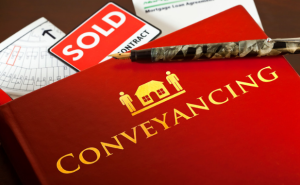Table of Contents
There is an increasing demand for solicitors’ services across the UK, whether seeking legal advice, translating issues into legal terms, producing legal documents, researching cases, or liaising with other law professionals. Despite providing all these services and more, one of the most common reasons that people seek the services of a solicitor is for conveyancing.
With the average price for a property in the UK being around £270,708, it’s understandable that we’d naturally want to enlist the services of a professional to help with the conveyancing of one of the most significant investments of our lives. Conveyancing is a legal term that refers to the buying, selling, or transferring residential and commercial property.
During the purchasing/selling process of a property, it’s essential that you enlist the services of a property lawyer to manage the process and ensure that the paperwork and legalities are completed on time. However, as is the risk with all services, all manner of problems, errors, or issues could occur, resulting in further complications and potential monetary loss.
Monetary loss at the hands of a negligent solicitor could make you a suitable candidate for professional negligence compensation.
However, it can be challenging to know where you stand, so we’ve created this article outlining what happens if your lawyer fails to inform you of a critical detail before you buy your property. So, you can identify whether you have the grounds for a negligence claim or not.
What Is Conveyancing Negligence?

First, it is essential to understand what conveyancing negligence is before you can determine whether you’ve fallen victim to it or not. When clients instruct a conveyancer or civil lawyer, they will usually be members of the Quality Conveyancing Scheme (CQS), which means that their work must meet specific standards plus a duty to provide their client with the highest-quality service.
This involves carrying out relevant checks on the property the client intends to purchase, such as issues with the title, planning restrictions, public access running through the property.
Some discoveries could result in the property being lower in value than previously thought and might make it challenging to sell in the future should the client want to relocate.
The conveyancer in question is also responsible for ensuring that all deadlines are met, checking all documents, and providing legal advice regarding the transaction. However, like any service provider, mistakes can happen, and issues can arise that might not have been anticipated previously.
Suppose your lawyer has been negligent and errors have occurred. In that case, they have not exercised the caution outlined under the Quality Conveyancing Scheme (CQS). Providing that you have lost money due to their negligence, you could be entitled to make a professional negligence claim.
How Can I Be Sure That My Lawyer Was Negligent?


Purchasing, selling, or transferring property can be an extremely laborious, costly process that is not always as straightforward as it may initially seem. Due to the number of steps involved in the conveyancing process, it’s not surprising that the scope for mistakes is more extensive than in other legal matters.
Many things can go wrong during the conveyancing process, no matter how skilled the professional you’ve instructed might be. Some of the most identifiable mistakes that your lawyer could make during the conveyancing process are:
- They fail to conduct proper searches and checks on the property you intend to purchase.
- Failure to perform adequate research into restrictive covenants and the property’s title.
- They fail to present the commercial building regulation certificates.
- They misadvise you about getting surveys done or adverse entries on searches.
- Not outlining any public rights of way that cross the property.
- Any issues that arise with planning, and many more.
Suppose you’re instructing a lawyer to convey your property, and any of the above applies to your case. In that case, you might be entitled to professional negligence compensation and should consider enlisting the help of a professional negligence lawyer such as the team at Hugh James.
Hugh James’ legal services cover a wide range of negligence laws and should be able to advise you further about any doubts you may have about your current conveyancer.
Browse their website for more information, follow their blog, or consider contacting a team member directly to learn how enlisting their services could help discover whether you have a negligence claim.
What Action Can I Take?
If you’re unfortunate enough to fall victim to negligence on your lawyer’s behalf, you might not know where to turn and feel unsure of your legal options. To start a professional negligence claim, your first course of action would be to approach a professional negligence lawyer, who will be able to discuss the process in detail with you.
Your chosen professional negligence lawyer will then walk you through the necessary steps to start your professional negligence claim, which is as follows:
- First, you will sit down and discuss precisely what happened and how with your lawyer.
- Afterwards, your lawyer will analyse any paperwork they ask you to provide and your lawyer/conveyancer’s file to determine how the negligence likely occurred.
- Your professional negligence lawyer will then collect evidence, statements and consult other experts for their opinion concerning your claim.
- After the evidence has been collected, your lawyer will send an official letter to your conveyancer’s firm to inform them of the claim.
What happens next very much depends on whether your conveyancer accepts responsibility for the negligence or not. Very few professional negligence claims result in a court case; instead, the claim will attempt to be resolved through mediation or negotiating to avoid the high cost of court fees.
Once your conveyancer has been informed of the claim against them, they will have an opportunity to respond and plead their case. This response often triggers mediation or negotiation, which many claimants are happy to opt for, so court action is rarely pursued.
How Much Can I Expect To Receive?
Providing that your claim is a success, there is no set amount that you can expect to receive. The amount of compensation you get will depend on the circumstances surrounding your claim and how much monetary loss you suffered.
Your amount of compensation could also fluctuate depending on the price you paid for the property, and the price you would have paid had the negligence not occurred.
In rarer professional negligence claims, you might be entitled to claim for the entire value of the property. If you’ve had to instruct another solicitor to rectify the issue, you could also claim these additional expenses from your original lawyer/conveyancer.
Is There A Time Limit To Sue A Conveyancer?


Like most professional negligence claims, there is a time limit in which you must act if you want to sue your conveyancer. As a rule of thumb, you must act within six years from the date the negligence happened.
However, if you discover you’ve fallen victim to negligence later, you will have three years (or from the end of the six years – whichever date is later) to make a claim from the date you became aware that the negligence occurred.
Except for rare cases, where there is not always the case, for further clarification, it’s best to consult a professional negligence lawyer who can advise you in these rare circumstances.






































